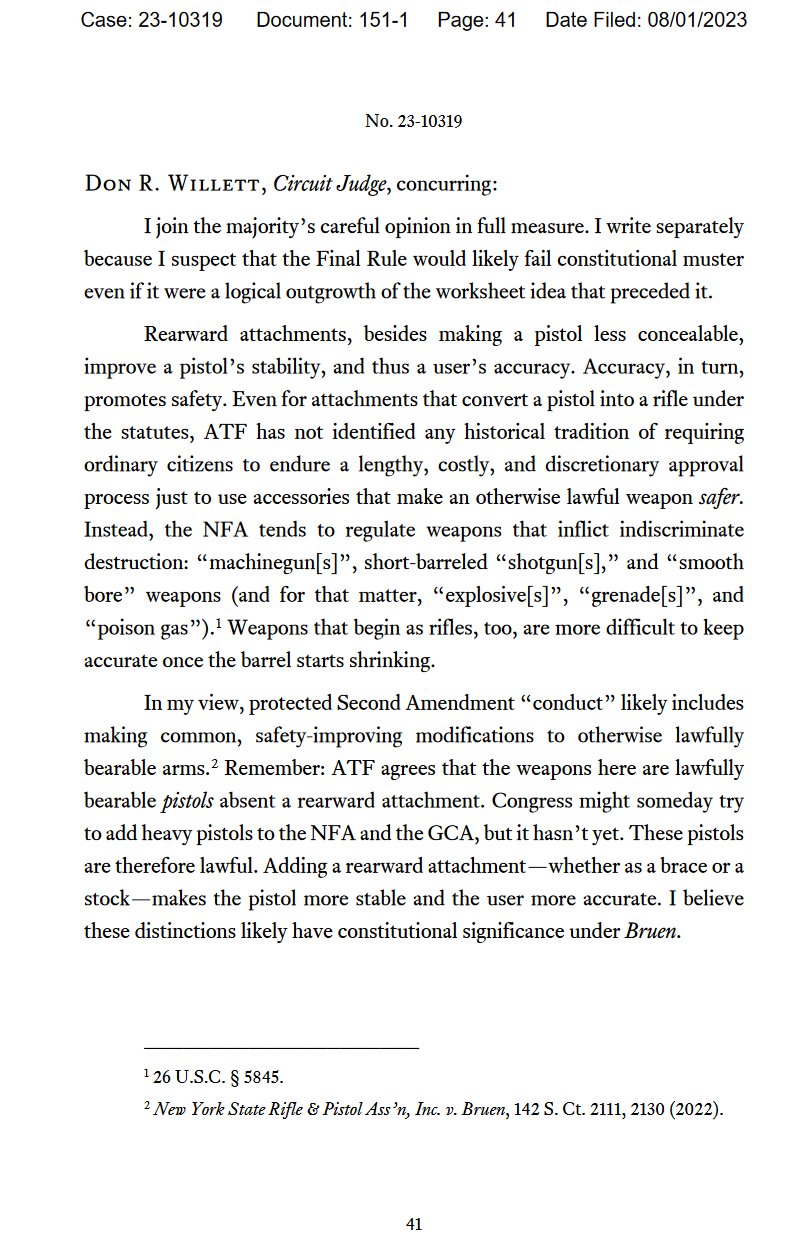The court ruled that since the law hadn’t actually been enforced yet, the plaintiffs didn’t have ‘standing’, as they weren’t yet subject to harm.
New Jersey Can Sue Gun Companies As A ‘Public Nuisance,’ Appeals Court Rules
The state of New Jersey can sue firearms manufacturers under a new state public nuisance law designed to target the industry, a federal appellate court ruled on Thursday.
New Jersey, in July of 2022, enacted new statutory law that allows the attorney general to sue gun manufacturers for being a “public nuisance” if they have “endangered the safety and health of New Jersey residents through the sale, manufacture, distribution, and marketing of lethal, but nonetheless legal, gun-related products,” according to the law. The state was then sued by the National Shooting Sports Foundation (NSSF) in November of 2022 in a “pre-enforcement action,” to stop them from bringing a suit under the law, which was on Thursday dismissed for a lack of ripeness — meaning that it hasn’t matured to the point where a genuine dispute exists — according to the court’s ruling dismissing the suit.
“Pre-enforcement challenges are unusual. To bring one, the plaintiff must show that the stakes are high and close at hand … Yet this suit falls far short of even the ‘normal’ pre-enforcement challenge. A brand-new civil tort statute, without more, does not justify a federal court’s intervention,” wrote U.S. Circuit Judge Stephanos Bibas, a Trump appointee to the U.S. Court of Appeals for the Third Circuit, for a unanimous three-judge bench. “[W]e see little evidence that enforcement is looming … the Foundation has jumped the gun,” Bibas noted.
New Jersey’s law was passed in response to the Supreme Court’s ruling in New York State Rifle & Pistol Association v. Bruen, where the court in a 6-3 ruling struck down a New York law that required pistol permit applicants to prove that a “proper cause exists” for having such a permit. The Supreme Court ruled that the law violated the Second Amendment.
“The exercise of other constitutional rights does not require individuals to demonstrate to government officers some special need. The Second Amendment right to carry arms in public for self-defense is no different,” wrote Justice Clarence Thomas for the majority in the case. The ruling was widely criticized by Democrats and left-wing groups, who argued that it would increase gun violence and prompted the passage of laws by Democratic-led states to curtail firearm access.
“A gun industry member shall not, by conduct either unlawful in itself or unreasonable under all the circumstances, knowingly or recklessly create, maintain, or contribute to a public nuisance in this State through the sale, manufacturing, distribution, importing, or marketing of a gun-related product,” reads the New Jersey statute, which was challenged by the NSSF. The law also specifies that “[t]he Attorney General shall not be required to demonstrate any special injury” to prevail in a legal challenge on these grounds.
The law had previously been blocked by U.S. District Judge Zahid Quraishi of New Jersey for purportedly violating federal law, which currently immunizes gun manufacturers from lawsuits when their guns are used to commit crimes.
The law adapts a model — creating a civil cause of action for private citizens to sue — that had been adopted by some conservative states, notably Texas, to enforce abortion restrictions prior to the Supreme Court’s overturning of Roe v. Wade. Democratic-led states, such as California, then vowed to use the same model to target gun manufacturers.
“During oral arguments, the panel appeared to have concerns with the law, as did the district court that enjoined enforcement,” said Lawrence Keane, the NSSF’s senior vice president and general counsel. “Should New Jersey’s attorney general attempt to enforce the law, we will immediately refile our complaint.”
“I am thrilled,” said Democratic Gov. Phil Murphy of New Jersey.

